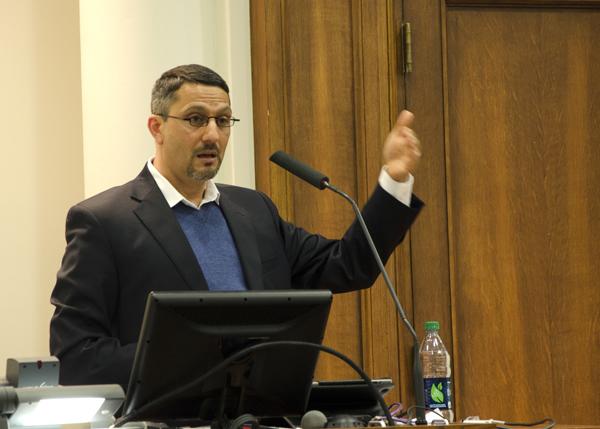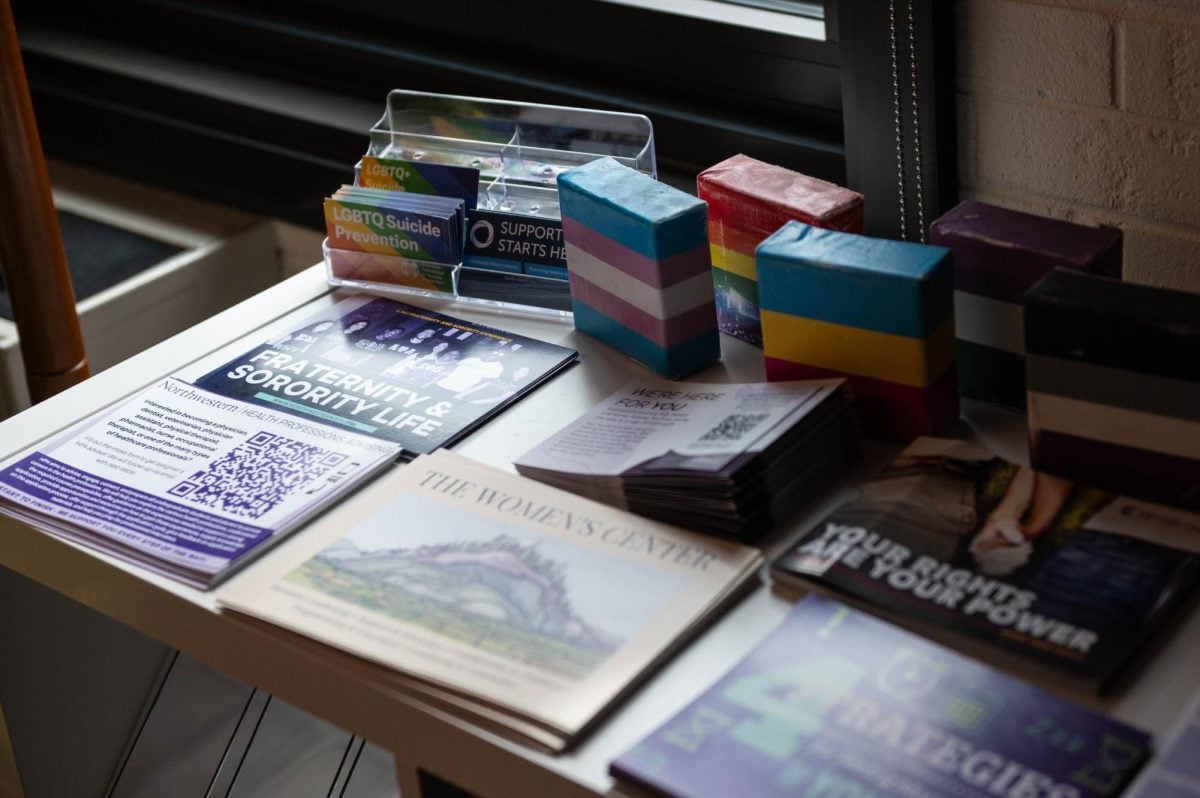
Hatem Bazian and Rashad Hussain, two individuals involved in the Muslim community, discussed on Thursday the “otherization” of the Muslim race and how to combat the idea of Islamophobia.
Bazian, chairman and co-founder of American Muslims for Palestine, and Hussain, U.S. Special Envoy to the Organization of Islamic Cooperation, spoke to more than 75 people in Harris Hall in a discussion hosted by the Northwestern Muslim-cultural Student Association.
Bazian, co-founder of the first Muslim liberal arts college in America, defined Islamophobia as a fear and hatred of Muslims and Islam that translates into individual ideological and systematic forms of oppression. Through his talk, Bazian encouraged students to take action against Muslim discrimination.
“Don’t be silent,” Bazian said. “Silent people never make history. Be the people that speak out. That’s how we make a difference.”
Both speakers talked about the importance of not feeling victimized as Muslims. Throughout history, different groups of people have been discriminated against, Hussain said. Hussain started by talking about his personal background, explaining how he got his job with the U.S. government, straying from what he believed were the more common careers for Muslim Americans.
“Throughout my whole career, what I’ve tried to do is just work with the people around me,” Hussain said. “If they have questions, answer their questions. Be who you are, be confident with who you are and don’t hold yourself back with these perceived obstacles.”
The speakers engaged the audience by noting the need to interact with different groups of people to accomplish a centralized goal and to overcome problems within their community. Bazian said the interests of the Muslim and American communities need to be made universal, stating that no one likes “me politics.”
“As we continue to work through a lot of issues, even on issues you might think are only specific to the Muslim community, you have to also recognize that those laws affect others,” Bazian said. “We need to work in coalition with those groups to address these issues.”
Students were given the opportunity to ask questions directed toward one or both of the speakers at the end of the event. They asked about different topics ranging from the media coverage of the Boston Marathon bombings, to where Islamophobia lies in the scheme of discrimination throughout history.
McCormick sophomore Hagar Gomaa said she found encouragement from Bazian’s call to action for the Muslim community.
“The most relevant thing for me was when Bazian talked about creating your own narrative, like concrete things we can be involved in to encourage awareness of Islam issues and create a strong Muslim American presence,” Gomaa said.
McSA administrative vice president Imtisal Khokher, a Weinberg sophomore, said she was interested and “impressed with Bazian’s talk about Muslims’ misrepresentation in the media.”
It is important to take these issues and bring them into focus, Khokher said.
“Some Muslims are not comfortable with the concepts of race because they themselves feel like outsiders,” Bazian said. “You have the capacity to change the world that you’re a part of.”



















